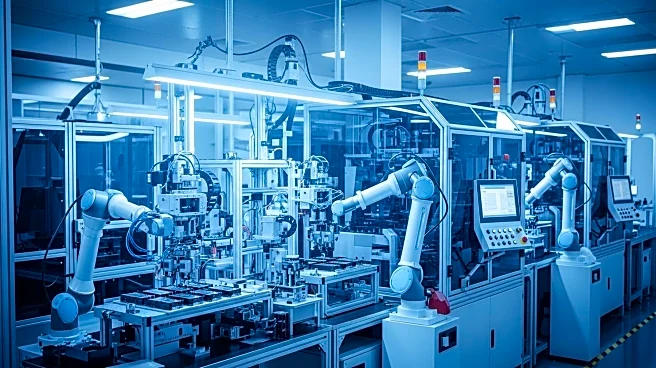What is the story about?
What's Happening?
Ericsson has announced its commitment to manufacture all telecom equipment sold in India domestically, aligning with the Indian government's 'Make in India' initiative. Andres Vicente, Ericsson's market chief for Southeast Asia, Oceania, and India, stated at the India Mobile Congress 2025 that the company plans to manufacture 6G equipment in India, with trials set to begin next year. Currently, Ericsson produces 4G and 5G gear in India but imports several components. Vicente emphasized the need for a holistic investment approach to develop a complete ecosystem of components, filters, and batteries within India. Ericsson operates three R&D centers in India and has expanded its ASIC R&D in Bengaluru, alongside local production of passive antennas with VVDN Technologies.
Why It's Important?
Ericsson's decision to boost local manufacturing in India is significant for the country's telecom industry and economic growth. By manufacturing domestically, Ericsson supports the 'Make in India' initiative, which aims to enhance local production capabilities and reduce dependency on imports. This move could strengthen India's position as a global telecom manufacturing hub, attracting further investment and fostering innovation. The development of a comprehensive ecosystem for telecom components could create jobs and stimulate economic activity, benefiting local businesses and suppliers. Ericsson's commitment to local manufacturing also aligns with global trends towards supply chain diversification and resilience.
What's Next?
Ericsson's plans to trial 6G equipment in India next year mark a significant step towards advancing telecom technology in the region. The company's focus on developing a complete ecosystem for telecom components suggests potential collaborations with local suppliers and increased investment in R&D. As Ericsson expands its manufacturing capabilities, other telecom companies may follow suit, further boosting India's telecom industry. The success of these initiatives could influence government policies and incentives to support local manufacturing and innovation.
Beyond the Headlines
Ericsson's commitment to local manufacturing reflects broader trends in global supply chain management, emphasizing the importance of regional production capabilities. The move could have long-term implications for India's economic development, positioning the country as a key player in the global telecom market. The focus on developing a complete ecosystem for telecom components highlights the potential for technological innovation and collaboration between international and local companies.
















